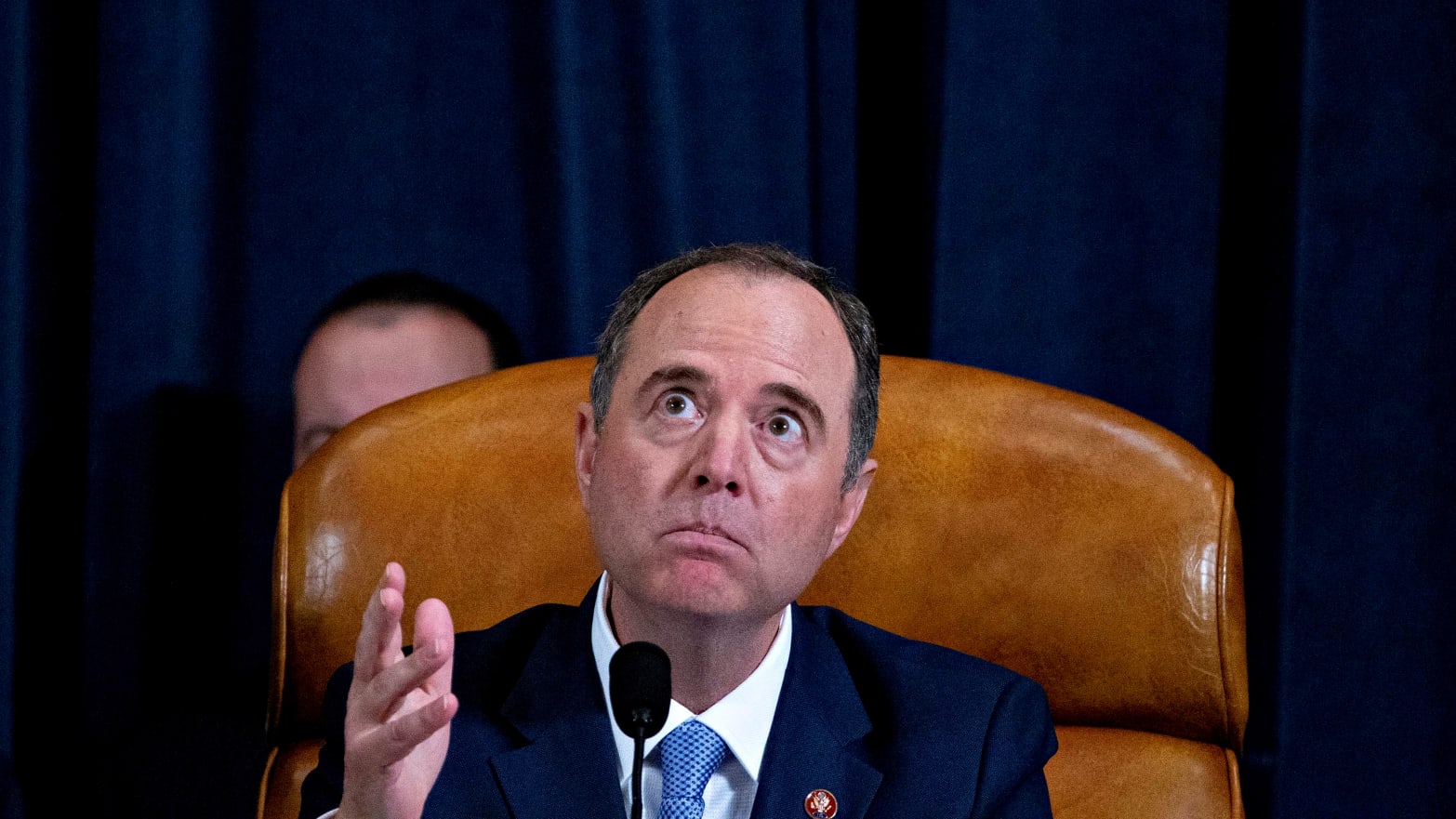The release of the House impeachment report this week has sparked furious denunciations within conservative circles that Democratic leadership used its power to unearth the phone records of journalists and lawmakers they don’t like.
But the inference left by those accusations bears little resemblance to what actually transpired.
Patrick Boland, the top spokesman for Democrats on the House Intelligence Committee, told The Daily Beast on Thursday that investigators “did not subpoena call records for any member of Congress or their staff... or for any journalist,” including—Boland added—the committee’s ranking member, Rep. Devin Nunes (R-CA) or John Solomon, a columnist formerly of The Hill whose reporting formed much of the public case for Rudy Giuliani and others to do their muckraking in Ukraine.
“Any questions about the fact that Members, congressional staff, or journalists appear in call records released by the Committee should be directed at those individuals, who were in contact with individuals of investigative interest to the impeachment inquiry,” Boland added.
In the impeachment report released on Tuesday, a number of call logs were made public showing conversations between Giuliani, officials at the White House and other agencies, and Lev Parnas, an associate of Giuliani’s who is now indicted on campaign finance violations. The records appear to have been obtained via a subpoena of AT&T, which released a statement on Wednesday saying that it is “required by law to provide information to government and law enforcement agencies.”
The report indicates that all of the call records obtained by the committee belonged to Parnas or Giulini. Every call mentioned in the report includes one or both of them. And the numbers assigned in the report’s footnotes to each document that AT&T produced to the committee appear sequential and grouped according to calls involving Parnas and Giuliani—in the case of the latter, numbers 02131 through 02139, and for the former, 00909 through 00914.
But that hasn’t stopped speculation that Schiff’s team cast a much wider net, one involving Solomon and Nunes. Such an inference was made in a Wall Street Journal editorial which warned that one of Schiff’s “targets” had been Solomon himself.
“How is Mr. Solomon’s reporting trail relevant to impeachment?” the editorial read. “The media usually condemn government officials who use surveillance to track and intimidate the media, but here they are cheering Mr. Schiff on.”
The WSJ editorial was worded carefully enough that it was unclear if the author believed Schiff actually subpoenaed Solomon’s phone records or if he or she was arguing that Schiff shouldn’t have published the metadata ensnaring Solomon that came from non-Solomon specific subpoenas. Similar Schiff critics have left it vague too, including The Washington Examiner’s Byron York and Sen. Rand Paul (R-KY).
But others have flatly accused the committee of subpoenaing Solomon’s phone records. The Western Journal—a pro-Trump outlet—accused Schiff of going “Full KGB” for putting out a report containing “the call-log phone records of a number of his political adversaries” including Nunes and Solomon. The Blaze, another Trump supportive outlet, ran a story under the headline: “Schiff obtained journalist John Solomon’s phone records, and nobody in the media seems to care.”
Even Solomon himself tweeted his belief that “my phone records” had been “arbitrarily released.”
Solomon noted that the publication of the call logs did raise questions of First Amendment protections—which they do. But the context appeared to be missing: mainly that his records weren’t actually the ones released, but rather the records of other (non reporters) that happened to involve calls with him.

